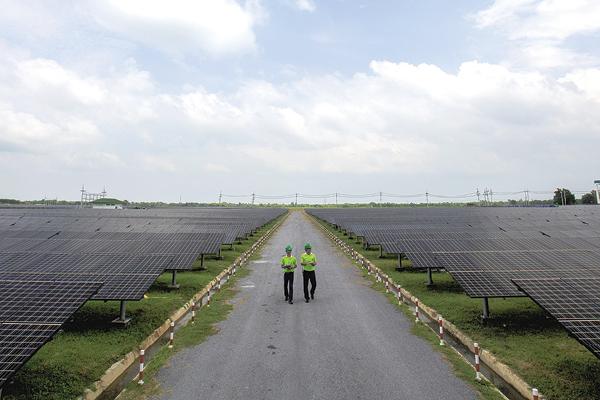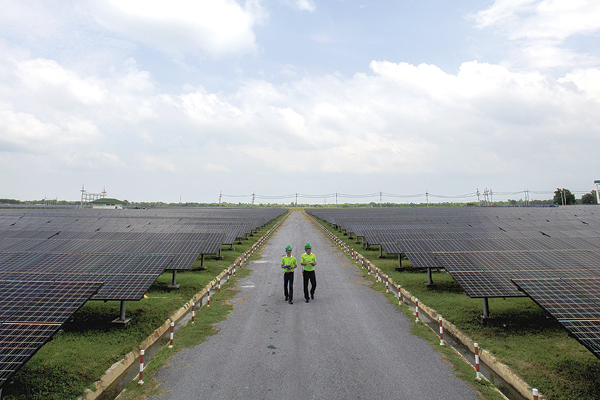
Thailand’s energy sector has been the topic of much conversation of late. For one, the country looks set to revise its Petroleum Act this year, which means more licences will be granted for oil and gas exploration. But the overall shift is towards renewable energy, with solar becoming a major component. Ranajit Dam looks at what this shift means for Thailand’s energy companies and lawyers
Skip to
There is a buzz around Thailand’s energy industry today. For one, the country is revising its Petroleum Act this year, after which licences for the 21st round of oil and gas exploration and production are expected to be granted. But more eye-catching has been the increased emphasis on solar. As Thailand shifts away from natural gas – a result of once-plentiful reserves being expected to run out within a decade – the country will have more solar power capacity than all of Southeast Asia combined.
Thailand’s National Legislative Assembly (NLA) is currently completing revisions to the Petroleum and State Revenue Acts, and once those are completed, the Southeast Asian nation is expected to offer 29 petroleum blocks – comprising 26 onshore blocks and six offshore blocks in the Gulf of Thailand – stretching over 25,662 square miles (66,463 square kilometers) in the 21st bidding round. According to the Bangkok Post, the government hopes this will result in the discovery of 1 to 5 trillion cubic feet of gas and 20 to 25 million barrels of crude oil.
Ratana Poonsombudlert, partner with Chandler & Thong-ek Law Offices (CTLO), says that the anticipated changes are generally positive. “For example, the current draft enables entrepreneurs to choose between concession and production sharing schemes,” she says. Meanwhile Kelvin Tang, vice-president, Legal, with energy company KrisEnergy, expects to see Thailand’s “much-talked-about” migration from a tax/royalty fiscal system to a production sharing fiscal system. The key to a smooth migration is how existing petroleum concessions are to be handled. “One of Thailand’s many attractions for the upstream oil and gas sector is its favourable tax/royalty fiscal system,” says Tang. “How Thailand handles this migration will certainly impact how oil/ gas companies evaluate investment.”
Lawyers note, however, that there is more focus on renewable and alternative energy development now, following a slow-down in exploration and production of hydrocarbon resources due to environmental and national economic concerns, particularly from NGOs. “There will be more renewable power projects in the market, including solar, biomass, waste-to-energy, and wind,” says Jessada Sawatdipong, partner with CTLO. “Coal-fired power projects may be possible, depending on government’s decision regarding proposed coal-fired power plants, amidst strong resistance from NGOs.”
Back to topSUN IS SHINING
The rising star of the country’s energy sector today, though, is solar. Record sums of money are being poured into the sector in the hopes of nurturing a new energy source to help drive the region’s second-biggest economy, and this shift is being aided by a plunge in solar-component costs and subsidised tariffs that have also helped feed the country’s solar boom.
About 1,200-1,500 megawatts of solar capacity will be connected to the grid this year, requiring as much as 90 billion baht ($2.7 billion) of investment, according to Reuters. Thailand’s solar capacity will rise to 2,500-2,800 MW this year from about 1,300 MW in 2014. That is almost six times more than the capacity added last year, and it will turn Thailand into the first significant solar power producer in a region where the sector has barely taken off.
And lawyers are benefiting from this boom. Jessada notes that solar power projects have kept CTLO’s project and finance teams fully engaged for quite some time, and he anticipates this trend will continue. “Especially in the next 12 months, we expect to support both sponsors and lenders on the development and financing of various types of solar projects across the country,” he says. Jessada adds that his firm is frequently sought out as counsel on renewable power projects. “Based on what’s in the pipeline, we expect our days to be very busy through the end of the year, and beyond,” he says. “Our legal team has longstanding relationships with major developers and lenders, and we continue to be approached by newcomers in this rapidly evolving sector.”
Additionally, Jessada says that he has observed a shift in the type of projects the firm advises on. “For example, in the past a major part of our work focused on independent power producer (IPP) and small power producer (SPP) gas-fired projects,” he says. “Recently, however, we represent more and more clients on renewable energy projects, e.g. solar, biomass, waste-to-energy, and wind. Also, perhaps prospects for additional gas-fired projects may slow-down in the short-term, as Thailand is aiming to balance fuel source, and thus reduce the percentage of gas projects in-country.”
Going forward, Jessada foresees steady growth in renewable power projects during the next 12 months, and expects to continue advising on either the developer or lender side of these transactions. “We also expect robust cross-border work to continue, particularly for power projects in Laos and Myanmar, where EGAT (Electricity Generating Authority of Thailand) is an offtaker. Our work in Laos tracks back more than 15 years, and has involved Laos’ burgeoning power industry since inception, particularly on financing for major hydroelectric developments. We hope to see this exciting work continue. Finally, together with our associate office in Yangon, Myanmar Legal Services Limited, we will continue to advise participants on Myanmar’s energy projects going forward.”
Back to top


